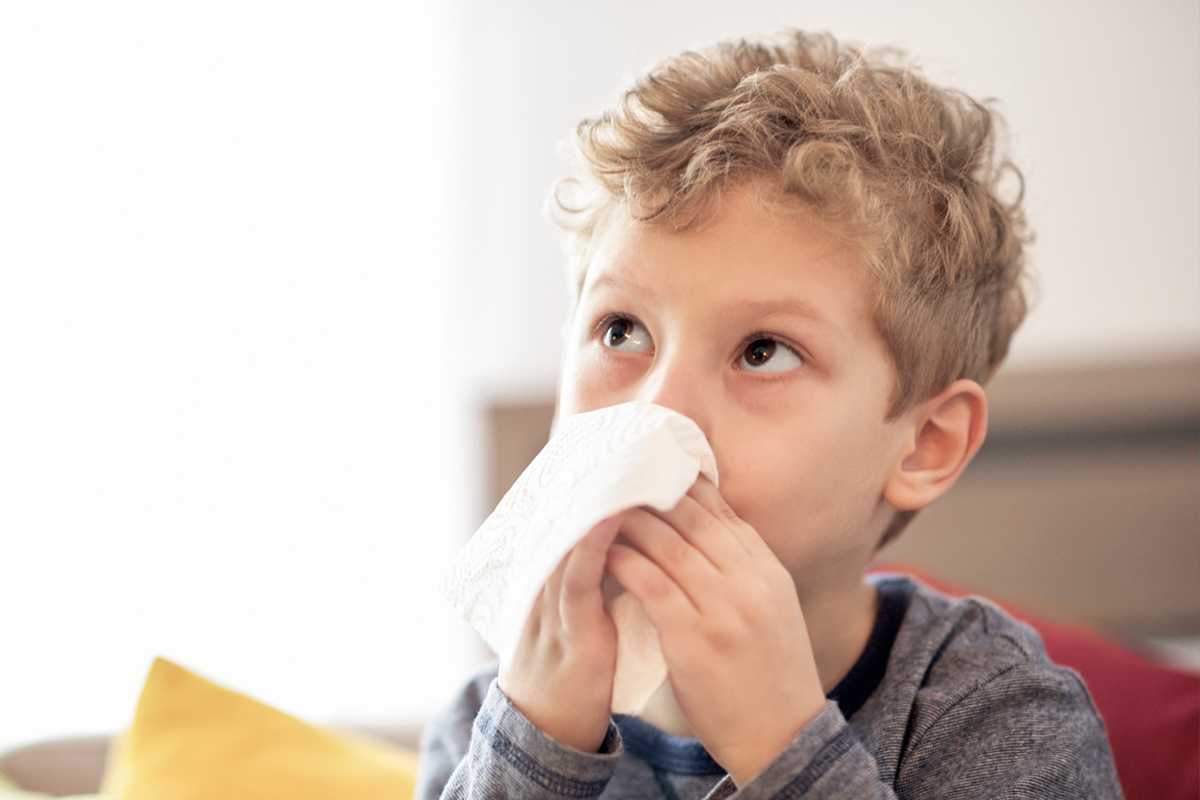
Seasonal allergies can be a major concern for families in Oregon, especially as the seasons change and pollen levels rise. Children, in particular, can struggle with allergy symptoms that affect their daily activities and overall well-being. From runny noses to itchy eyes and difficulty sleeping, allergies can disrupt school, play, and quality of life.
Parents need to be proactive in identifying seasonal triggers and taking steps to mitigate their effects. Allergies can sometimes be difficult to distinguish from common colds or respiratory illnesses, making it essential to track symptoms and recognize seasonal patterns. By staying informed and taking preventive measures, parents can help their children minimize discomfort and enjoy their daily activities with fewer interruptions.
Understanding the most common allergens in Oregon and how to manage your child’s symptoms can make a big difference in their comfort. With the right strategies, you can help your child enjoy the outdoors and daily activities without constant allergy struggles.
Common Seasonal Allergens in Oregon
Oregon’s lush landscapes and diverse plant life contribute to the state’s high pollen levels. The most common seasonal allergens include:
- Tree Pollen (Spring) – Trees such as alder, birch, oak, and maple release pollen in early spring, triggering allergic reactions in many children.
- Grass Pollen (Late Spring to Summer) – Ryegrass, Timothy grass, and Kentucky bluegrass are significant contributors to seasonal allergies.
- Weed Pollen (Late Summer to Fall) – Ragweed, sagebrush, and pigweed are among the culprits that can cause allergic reactions.
- Mold Spores (Year-Round, Peaking in Fall) – Damp conditions in Oregon create an environment where mold spores thrive, especially in fallen leaves and decaying vegetation.
- Dust Mites (Year-Round, Peaking in Humid Conditions) – These microscopic allergens are common indoors and can cause allergy symptoms throughout the year, especially in homes with carpets, upholstered furniture, and bedding.
Recognizing Allergy Symptoms in Children
Seasonal allergies can sometimes be mistaken for a cold or other illnesses. Common symptoms in children include:
- Sneezing and nasal congestion
- Runny or itchy nose
- Watery, itchy, or red eyes
- Coughing or throat irritation
- Fatigue due to disrupted sleep from congestion
Tips for Managing Seasonal Allergies
Fortunately, there are several ways to help your child manage their allergies and find relief from symptoms:
- Monitor Pollen Counts – Check daily pollen forecasts and limit outdoor activities when levels are high, especially in the morning and on windy days.
- Keep Windows Closed – Prevent pollen from entering your home by using air conditioning instead of opening windows during peak allergy seasons.
- Encourage Frequent Handwashing – Washing hands and changing clothes after outdoor play can help reduce allergen exposure.
- Use HEPA Filters – Installing high-efficiency particulate air (HEPA) filters in your home can help reduce airborne allergens.
- Try Over-the-Counter Medications – Antihistamines, nasal sprays, or allergy eye drops (as recommended by your pediatrician) can provide symptom relief.
- Consider Allergy Testing – If your child has persistent or severe allergies, consult an allergist for testing and possible long-term treatment options, such as allergy shots.
- Create an Allergen-Free Sleep Environment – Washing bedding frequently in hot water, using dust-proof pillow and mattress covers, and keeping stuffed animals to a minimum can significantly reduce allergen exposure in your child’s bedroom.
- Ensure Proper Hydration and Nutrition – A well-balanced diet and staying hydrated can help strengthen the immune system and reduce inflammation associated with allergies.
When to See a Doctor
If your child’s allergy symptoms are severe, affecting their sleep, school performance, or leading to frequent sinus infections or asthma flare-ups, it’s important to seek medical advice. An allergist can help identify specific triggers and recommend personalized treatment options.
In some cases, a doctor may recommend immunotherapy (allergy shots) to gradually desensitize your child’s immune system to specific allergens. This can be a long-term solution for children with severe allergies that significantly impact their daily lives.
Final Thoughts
While seasonal allergies in Oregon can be challenging, proactive management can help keep symptoms under control. By identifying allergens, minimizing exposure, and seeking appropriate treatment, you can ensure your child enjoys the beauty of Oregon’s changing seasons without unnecessary discomfort.

Emily currently lives in Orange County, California after spending four years in Illinois and half a year teaching in Florence, Italy. She holds a B.A. in English Literature from Knox College and an M.A. in Counseling from the University of San Diego and has taught English to native speakers and ESL students for over three years. When she’s not working as a School Counselor or writing, she enjoys traveling the world, playing instruments, and blogging about Millennial experiences at Long Live the Twenties.
